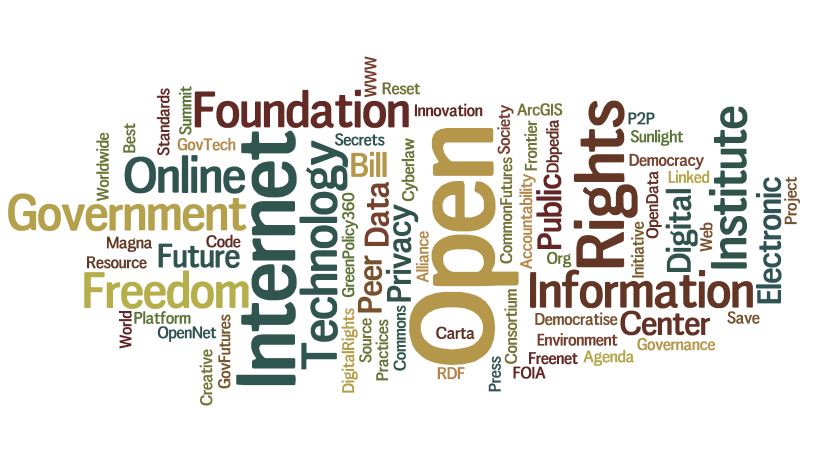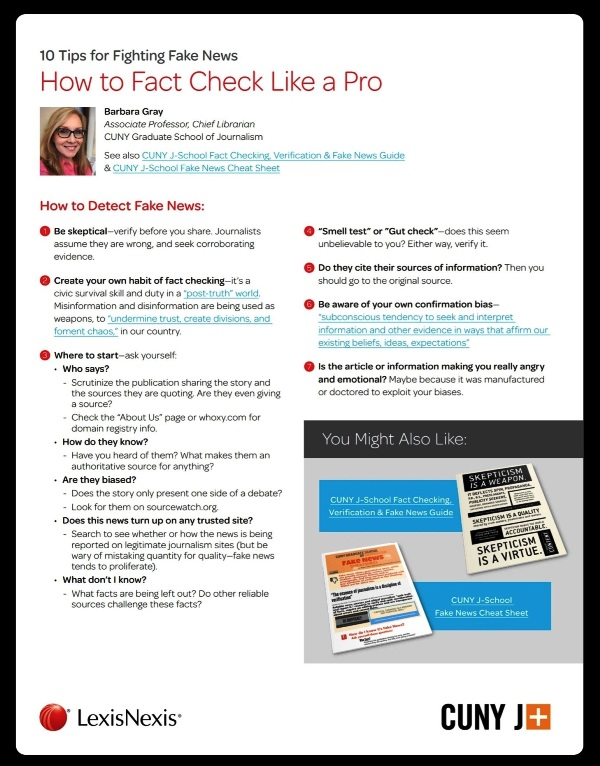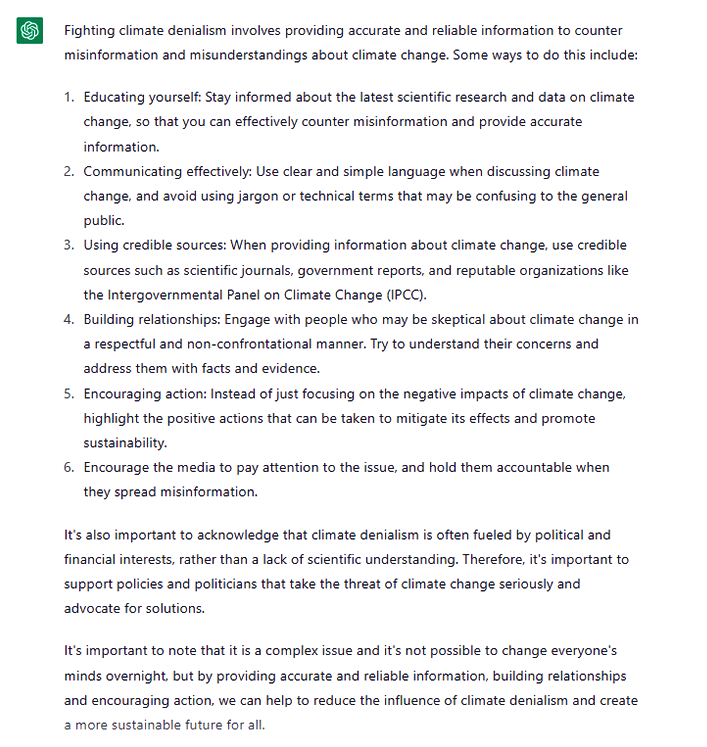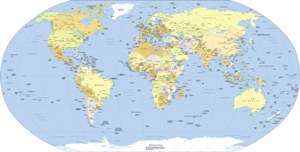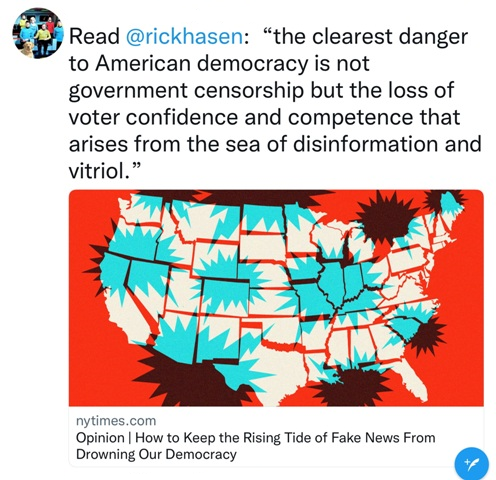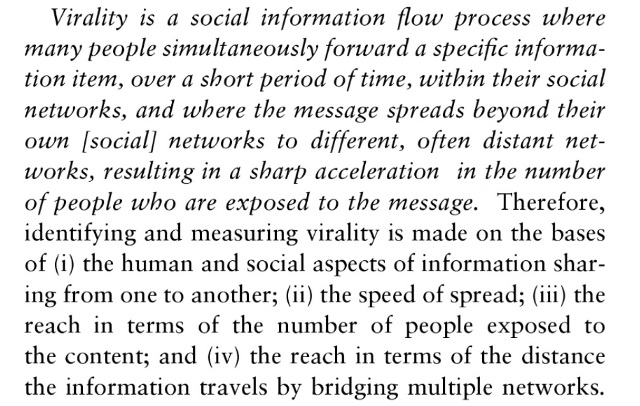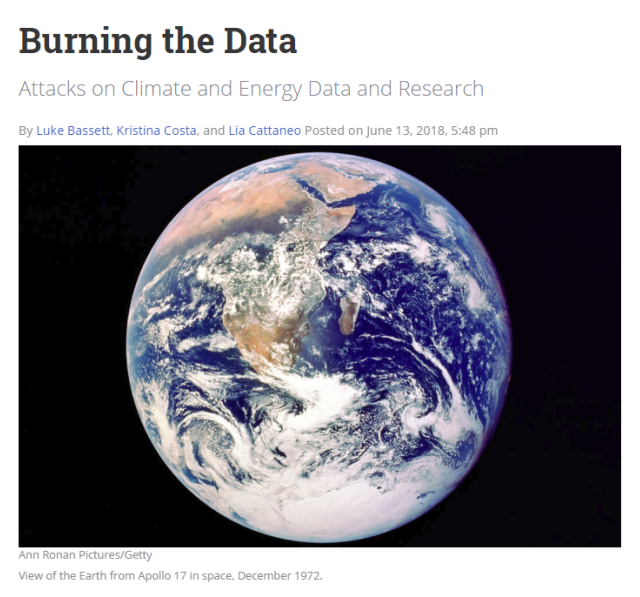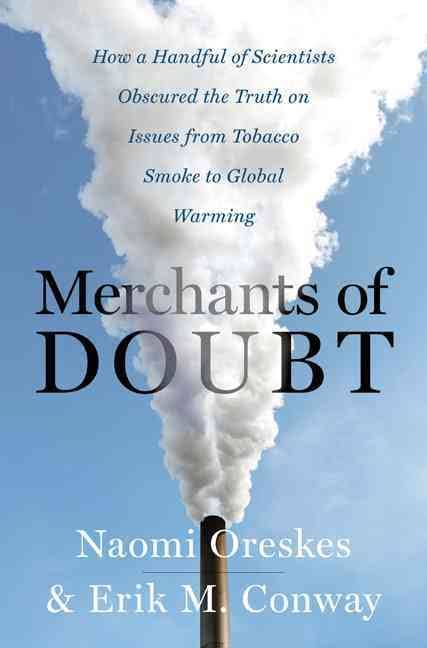Disinformation - Online - Dangerous: Difference between revisions
Siterunner (talk | contribs) No edit summary |
Siterunner (talk | contribs) No edit summary |
||
| Line 80: | Line 80: | ||
''NewsGuard Technologies Inc., the company behind the tool, also provides services such as misinformation tracking and brand safety for advertisers, search engines, social media platforms, cybersecurity firms, and government agencies.'' | ''NewsGuard Technologies Inc., the company behind the tool, also provides services such as misinformation tracking and brand safety for advertisers, search engines, social media platforms, cybersecurity firms, and government agencies.'' | ||
''NewsGuard was created as an alternative to the black-box algorithms that decide which news content is promoted and which is not on big tech platforms--and as an alternative to any government censorship of content. We rate publishers using publicly disclosed, apolitical journalistic criteria, and we publish the evidence and rationale behind our assessment of each publisher we rate, along with any comments from the publisher, so that each reader can see and decide for themselves,” | |||
According to NewsGuard’s General Manager Matt Skibinski': | |||
''"NewsGuard was created as an alternative to the black-box algorithms that decide which news content is promoted and which is not on big tech platforms--and as an alternative to any government censorship of content. We rate publishers using publicly disclosed, apolitical journalistic criteria, and we publish the evidence and rationale behind our assessment of each publisher we rate, along with any comments from the publisher, so that each reader can see and decide for themselves,” | |||
* https://www.newsguardtech.com/ | * https://www.newsguardtech.com/ | ||
| Line 87: | Line 90: | ||
News about NewsGuard -- | News about NewsGuard -- | ||
October | October | ||
Revision as of 07:10, 24 October 2023
GreenPolicy360: The development of science over the ions is, as the song goes, "a long and winding road" but here we are in the 21st Century and still facing ancient themes. The "Scientific Revolution", as it was called, was based on ancient knowledge -- and arguments -- that carried through the "Middle Ages" and led to the "Age of Enlightenment", the "Age of Reason", and in Europe the end of "Feudalism", and beginning of "Mercantilism", "Colonialism", "Capitalism" and "Socialism". Social and political revolutions across the world in the 1800s brought on conflict and wars that carried into and across the 1900s with two world wars and nuclear weapons now threatening civilization -- and humanity's existence. Now as the 21st Century reveals new reality, we look out at mixed economies, a heated struggle between democratic and authoritarian governments. New technology and communication networks are used and misused, a global "Internet Age" connecting nations across our planet. We are creating the beginnings of a new electronic, computer era with all its benefits, knowledge, and threats -- an online 360, 24/7/365 system that is 'always on' and shaping our world view.
Within the Internet, the "World Wide Web", the 'lit, open web' and the 'dark web', a different neural network than any before the 21st Century is powering up, with machine learning and artificial intelligence on the near horizon. Computer-assisted reach, engagement, and persuasive power of digital communication is just beginning to feel its full power.
Dis- and Mis-info has spread throughout the first generation of the "Net" and "Web". Social Media and Big Data marketing, targeting, and manipulation have become ubiquitous. Today's Digital Citizen has to recognize, confront, and deal with this e-world of disinformation.
Here are an array of democratic ideas and tech-tools presented on GreenPolicy360 to assist:
Fact Checking and Embedded Links
Privacy on the Net-Online Rights
Strategic Policy-Internet Online Rights
Wikipedia, Wikimedia, MediaWiki, and wiki
○
2023
NewsGuard
Browser plugin that rates the credibility of news and information websites <Via Wikipedia>
NewsGuard is a rating system for news and information websites. It is accessible via browser extensions and mobile apps.
NewsGuard Technologies Inc., the company behind the tool, also provides services such as misinformation tracking and brand safety for advertisers, search engines, social media platforms, cybersecurity firms, and government agencies.
According to NewsGuard’s General Manager Matt Skibinski':
"NewsGuard was created as an alternative to the black-box algorithms that decide which news content is promoted and which is not on big tech platforms--and as an alternative to any government censorship of content. We rate publishers using publicly disclosed, apolitical journalistic criteria, and we publish the evidence and rationale behind our assessment of each publisher we rate, along with any comments from the publisher, so that each reader can see and decide for themselves,”
News about NewsGuard --
October
NewsGuard Report: 74% of X's most viral misinformation posts are from "verified" users
Top Israel/Hamas misinformation spreaders use Elon Musk’s paid “verification”
"Verified" accounts on Elon Musk's X platform spread nearly three-quarters of the 250 most viral posts containing commonly shared misinformation about the Israel-Hamas war, according to a study released yesterday by NewsGuard, a company that has worked with the European Commission on misinformation initiatives.
After buying Twitter nearly a year ago, Musk overhauled the system for doling out blue checkmarks so that anyone who pays $8 a month can be "verified." Accounts verified as being notable and authentic under the pre-Musk system had their checkmarks removed.
- (According to NewsGuard)
- During the first week of the conflict (Oct. 7-Oct. 14), NewsGuard analyzed the 250 most-engaged posts (likes, reposts, replies, and bookmarks) that promoted one of 10 prominent false or unsubstantiated narratives relating to the war, derived from NewsGuard's Misinformation Fingerprints, its proprietary database of prominent false narratives. The results revealed that 186 out of these 250 posts—74 percent—were posted by accounts verified by X. ...
NewsGuard worked with the European Commission on the EU's Code of Practice on Disinformation, a voluntary system that Twitter joined before Musk bought the company. Musk pulled his platform out of the disinformation pact in May 2023. A Code of Practice study conducted for the EU by analytics firm TrustLab found that disinformation is more prevalent on X than on Facebook and other social networks.
NewsGuard, founded in 2018, is also providing data on misinformation to Europe's Joint Research Centre.
European Commissioner for Internal Market Thierry Breton warned Musk last week that X faces penalties under the new Digital Services Act if it doesn't take action to stop the spread of Israel/Hamas disinformation. The EC is investigating X's compliance with the new law and sent similar requests for information to Meta and TikTok.
○
September
E.U. Law Sets the Stage for a Clash Over Disinformation
A new European Union law that could force the world’s social media platforms to do more to fight it — or else face fines of up to 6 percent of a company’s revenue.
The law, the Digital Services Act, is intended to force social media giants to adopt new policies and practices to address accusations that they routinely host — and, through their algorithms, popularize — corrosive content. If the measure is successful, as officials and experts hope, its effects could extend far beyond Europe, changing company policies in the United States and elsewhere.
The law, years of painstaking bureaucracy in the making, reflects a growing alarm in European capitals that the unfettered flow of disinformation online — much of it fueled by Russia and other foreign adversaries — threatens to erode the democratic governance at the core of the European Union’s values.
Europe’s effort sharply contrasts with the fight against disinformation in the United States, which has become mired in political and legal debates over what steps, if any, the government may take in shaping what the platforms allow on their sites...
○
How to Identify and Deal with Disinformation, Manipulated Images, Video, DeepFakes & More
- Generative adversarial network (GAN) trained photographs & More
- Revealing those Bots & More
- https://thefix.media/2023/7/11/ai-tools-to-detect-disinformation-a-selection-for-reporters-and-fact-checkers
- https://en.wikipedia.org/wiki/Generative_adversarial_network
○
Algorithms, Big Data, AI/Artifical Intelligence and More... Looking into Future of Media
Data & Society studies the social implications of data-centric technologies, automation, and AI
Through empirical research and active engagement, our work illuminates the values and decisions that drive these systems — and shows why they must be grounded in equity and human dignity.
○
The News Media Needs to Aim for Facts, not "Performative Neutrality"
- Democracy is at Risk
- Key to Democratic Government: Facts, Knowledge, Education
Via Columbia Journalism Review / April 25
"Objectivity, democracy, and the American mosaic"
We find ourselves in a perilous moment. Democracy is under withering assault. Technological advances have empowered propagandists to profit through discontent and disinformation. A coordinated, fifty-year campaign waged by one of our major political parties to denigrate the media and call objective reality into question has reached its logical conclusion: we occupy a nation in which a sizable portion of the public cannot reliably tell fact from fiction. The rise of a powerful nativist movement has provided a test not only of American multiracial democracy, but also of the institutions sworn to protect it.
... the press had often failed this test by engaging in performative neutrality, paint-by-the-numbers balance, and thoughtless deference to government officials. Too many news organizations were as concerned with projecting impartiality as they were with actually achieving it, prioritizing the perception of their virtue in the minds of a hopelessly polarized audience over actual adherence to journalistic principle.
To this day, news organizations across the country often rely on euphemisms instead of clarity in clear cases of racism (“racially charged,” “racially tinged”) and acts of government violence (“officer-involved shooting”). Such decisions, I wrote, are journalistic failings, but also moral ones: when the weight of the evidence is clear, it is wrong to conceal the truth. Justified as “objectivity,” they are in fact its distortion...
○
Shoshana Zuboff: ‘Privacy has been extinguished. It is now a zombie'
January 30, 2023
Excerpts of Interview in the UK Financial Times
Shoshana Zuboff, a professor emerita at Harvard Business School, published The Age of Surveillance Capitalism in 2019 — a blast about how tech companies had made billions of dollars by sucking up private data. “We thought we were searching Google, but Google was searching us” ...
Today (in January 2023) she’s frustrated that efforts to restrain tech companies are so fragmented. “We have fantastic scholars, researchers, advocates who are focused on privacy, others who are focused on disinformation, others who are focused on the nexus with democracy,” she says, when we meet in London. This “Balkanisation” reduces the ability to pinpoint the “actual source of harm”: people’s data is treated as a costless resource, just as forests and other parts of nature were in centuries past. Zuboff cites data that, in the US, which has no federal privacy law, people have their location exposed 747 times a day. In the EU, which she says has the “best regulation”, it’s 376. “It’s better, but it’s not nearly better enough.”
“It is possible to have surveillance capitalism, and it is possible to have a democracy. It is not possible to have both,” she has written.
“Users have no say”
Individuals realistically cannot opt out by themselves. What we need is a right to sanctuary.
Last year Brussels introduced the Digital Services Act and Digital Markets Act, its most comprehensive tech legislation to date. The UK parliament is currently debating an online safety bill. Zuboff wants these to be stepping stones.
...
(FT) Normally in newspaper interviews, the journalist asks questions, and the interviewee answers them. An interview with Zuboff is different. You ask questions and, more often than not, she responds with first principles — step-by-step explanations of how she believes that surveillance capitalism has taken hold this century.
Zuboff is particular about how her ideas are described, about how things are set up.... She mulls each detail.
This particular mind is, in tech terminology, a feature, not a bug. It enables Zuboff to take the long view.
In 1988, she published In the Age of the Smart Machine, which argued that computers would change companies in a way that previous technologies had not.
She later ran Odyssey, a Harvard Business School education programme to help successful people decide how to spend the later part of their lives. Her opus on surveillance capitalism was her own late-career flourish. It was published when she was 67, after a lightning strike had burnt down her family home in Maine and after the unexpected death of her husband and sometime co-author, the businessman Jim Maxmin. Zuboff argues that tech companies knew that the public would never support their data collection.
“Right from the start, they were understood as things that had to be secret, had to be camouflaged from users, lest they provoke resistance.” She quotes a recent Google executive as saying: “Won’t it creep people out to know how much we are paying attention?”
Today tech companies “are becoming much more reluctant to patent their discoveries, because they don’t want the public to know exactly what they’re doing. They’re no longer in most cases making their own data available to researchers.” So Zuboff sees the need for a regulatory fishing expedition. The EU’s tech laws will create “new cadres of people with new mixes of skills that are going to go inside the corporations. Their brief will be to lift the hood, to understand what’s really going on. One of the huge problems that we have is that most of the information that comes out of the companies is intentionally designed to be misleading. Gaslighting is a rhetorical art form that is genuinely practised by these companies.”
Zuboff rarely uses short answers or plain terminology.
Nonetheless, she is direct about content moderation — companies’ attempts to remove harmful content — which she describes as “quicksand... an utterly losing proposition, designed in fact to keep us occupied as long as possible so that they can keep getting away with what they’re really doing.”
She is more positive about age-appropriate design, where platforms are engineered to minimise harm to children and to collect less data from them.
...
The problem for privacy advocates is that their cause seems to offer too few advantages and too many drawbacks. For most European citizens, the biggest impact of privacy legislation is annoying cookies pop-ups...
(S)he admits regulation is hindered “because we can’t get inside [tech companies] to know what’s really going on. We’re regulating with blinders on... We don’t understand our adversary well enough.”
Zuboff insists that her attack is not against technology itself, but the economic logic that underpins it — “theft”. She holds out the possibility that we could use data and prediction for the common good. The counterargument is that there are basic trade-offs.
Tech services, whether for predicting text answers or the fastest driving routes, can only work by accumulating data and reducing our privacy.
(What does she think) of Musk’s ownership of Twitter... “We’ve got politicians, lawmakers, elected officials, as well as the entire citizenry, focused on one man and asking the question, ‘what will he do?’ Our political stability, our ability to know what’s true and what false, our health and to some degree our sanity, is challenged on a daily basis depending on which decisions Mr Musk decides to take. I regard this as fundamentally intolerable... These spaces cannot exist solely under corporate control... We’re two decades into the digital era but we have never, as democracies, taken stock of the meaning of these technologies.”
...
“In an information civilisation, our information spaces must exist under public law and be governed by democratic institutions... With luck and determination we will look back on the days of the information oligarchs like Musk and Zuckerberg as the first primitive missteps of a new civilisation.” She compares the west’s tech giants to China’s surveillance state. “This is a world in which privacy has been extinguished. Privacy is now a zombie category. None of us have privacy, even as we thought about it in the year 2000.” Her sense of dystopia is visceral....
The abolition of surveillance capitalism requires new laws that allow societies to decide “what becomes data in the first place, what we share, with whom, and to what purpose”.
Instead, tech marches onwards, particularly in the form of artificial intelligence. “ChatGPT has shaken us up. It has shocked people, forcing us to recognise how far AI has come, with virtually no law and democratic governance to shape or constrain its development and application.” AI’s development has relied on stealing human data, she argues.
She points hopefully to the EU’s proposed AI Act — “the first law to assert democratic governance over the application of AI”. But it’s hard not to feel that, even when Silicon Valley stumbles, it is still a step ahead. On the spot How do you control your own data?
I do everything that a person can do. I use encrypted services, I use a VPN. I rarely deploy apps on my phone unless absolutely necessary. Will tech companies sue the EU over new regulations? The standard MO is litigation. They want to tie individuals, agencies, groups up in court for as long as possible. They have the capital to be able to do that.
References:
○
A New Challenger Rolls Out -- Artificial Intelligence's ChatGPT
ChatGPT Confronts 'Climate Denialism'
○
2022
How Google’s Ad Business Funds Disinformation Around the World
Via ProPublica
October 2022
Using data from fact-checking newsrooms and researchers, @ProPublica scanned more than 13,000 active article pages from thousands of websites in more than half a dozen languages to determine whether they were making money with Google Ads.
The largest-ever analysis of Google’s ad practices on non-English-language websites reveals how the tech giant makes disinformation profitable.
Google is funneling revenue to some of the web’s most prolific purveyors of false information in Europe, Latin America and Africa, a ProPublica investigation has found.
The company has publicly committed to fighting disinformation around the world, but a ProPublica analysis, the first ever conducted at this scale, documented how Google’s sprawling automated digital ad operation placed ads from major brands on global websites that spread false claims on such topics as vaccines, COVID-19, climate change and elections.
○
Books on Disinformation: Its History, Techniques and Effects
Via New York Times / June 2022
○
NewsGuard targets Disinformation / Misinformation: Check out the NewsGuard online services
○
The Union of Concerned Scientists Reveals Facts About the 'Disinformation Playbook'
Countering Disinformation in Your Community (PDF)
Is Disinformation the Same as Misinformation?
What You Can Do to Stop Disinformation
How Business Interests Deceive, Misinform, and Buy Influence at the Expense of Public Health and Safety
Here are five of the most widely used “plays” and some of the many cases where they have been used to block regulations or minimize corporate liability, often with frightening effectiveness—and disastrous repercussions on public health and safety.
1) The Fake
Conduct counterfeit science and try to pass it off as legitimate research
2) The Blitz
Harass scientists who speak out with results or views inconvenient for industry
3) The Diversion
Manufacture uncertainty about science where little or none exists
4) The Screen
Buy credibility through alliances with academia or professional societies
5) The Fix
Manipulate government officials or processes to inappropriately influence policy
○
Misinfo/Disinfo, Powerful Political Tools
Hybrid Threats, Hybrid Warfare
In politics, in influencing and swaying public opinion, in engaging target audiences and motivating these groups and individuals with 'calls to action'
In international relations, in regional conflicts, in the cause of nationalism, conflicts and wartime
In the Internet Era, the Use of Misinformation and Disinformation becomes a formidable weapon
Psyops
Dictionary Definition of Psyops (psychological operations) by Merriam-Webster
- Military operations usually aimed at influencing the enemy's state of mind through noncombative means (such as distribution of leaflets)
First Known Use of psyops
- First known use of psyops -- 1965, in the meaning defined above
GreenPolicy360's associate, Strategic Demands, adds an expanded definition in cyberwarfare application of psyops -- consider "cyber-psyops" as in the disinformation/misinformation viral use of online social media platforms to deliver messaging intended to deceive, distract, and sow distrust of fact-based news and online information
e.g., via The Guardian / March 20, 2022
"Fake news factories with wave of sanctions
"UK and US crack down on outlets and websites peddling ‘false and misleading’ reports thought to be backed by Russian intelligence"
○
Disinformation / Misinformation
The Bane of the Early Internet Age
Misinformation... Disinformation... Deeply Damaging Democracy
·······························································
Fact-Checking, 'Facts Count'
80 Countries-237 Fact-Checking Sites (2020)
60 Countries-188 Fact-Checking Sites (2019)
37 Countries-96 Fact-Checking Sites (2016)
Poynter Int'l Fact Checking Network
Reporters Lab Fact-Checking News
····················································
WWW Origins-Foundation, established by World Wide Web founder Tim Berners-Lee, "devoted to all people having access to the Web" - WebFoundation.org
- March 2017 Open Letter from Berners-Lee on Threats to the Web
····································
····································
From the Aspen Institute:
·························
From Micah Sifry:
April 2021
On Anti-disinformation work
In the last five years of a whole cottage industry (has been built) of research centers, academic studies, journalistic conferences and tech summits on disinformation.
In 2017, the CUNY School of Journalism (now called the Craig Newmark Graduate School of Journalism at CUNY) launched a $14 million News Integrity Initiative with primary funding from Facebook, with the goal of “helping people make informed judgments about the news they read and share online.” That same year, the Omidyar Network announced $100 million in funding for journalism outlets and to organizations combating hate speech and the spread of false information. The Annenberg Innovation Lab launched a “Truthiness Collaborative” to “advance research and engagement around the misinformation, disinformation, propaganda and other challenges to discourse fueled by our evolving media and technology ecosystem.
Now in just the last year, there’s a plethora of new organizations with names like The Forum on Information and Democracy, Digital Citizens Alliance, the Coalition for a Safer Web, and the Global Project Against Hate and Extremism.
More from Micah:
To Change Voters’ Sympathies, It’s Time to Go Deep
○
○
Time for an International 'Internet Bill of Rights'
○
Fighting Back: Time for Facts and Science
Digital360
- https://www.greenpolicy360.net/w/Category:Digital_Citizen | Digital Citizen
- https://www.greenpolicy360.net/w/Digital_Rights | Digital Rights
- https://www.greenpolicy360.net/w/File:Beginning_of_WWW_89_TimBerners-Lee_CERN.jpg | World Wide Web
GreenPolicy360 & Science
- https://www.greenpolicy360.net/w/File:Good_science_needs_good_data_.png | GreenPolicy360, Facts & Data
- https://www.greenpolicy360.net/w/Stats_-_Green_Research_%26_Science | GreenPolicy360, Our Policy on Science
- https://www.greenpolicy360.net/w/Climate_Change_-_Global_Warming_Keyword-Terms | Global Climate Keywords
- https://www.greenpolicy360.net/w/File:You_can_manage_only_what_you_can_measure_Dr_David_Crisp,_OCO-2,_June_2014_m.jpg | Measure-to-Manage
- https://www.greenpolicy360.net/w/Merchants_of_Doubt | Merchants of Doubt
- https://www.greenpolicy360.net/w/File:Science_denial_graph.jpg | Techniques of Science Denial (Graph)
- https://www.greenpolicy360.net/w/File:FLICC_techniques_of_science_denial.png | Techniques of Science Denial (Video)
- http://www.nature.com/news/wikipedia-shapes-language-in-science-papers-1.22656 | Wiki Community Science
Climate Denial / Misinfo
- https://climatefeedback.org | ClimateFeedback.org
- https://climatecrocks.com/ | Climate -- Crocks, Denial, Facts & Vids
- https://www.vice.com/amp/en_us/article/y3z737/the-12-arguments-every-climate-denier-uses-and-how-to-debunk-them | Debunking Climate Denial
- http://www.desmogblog.com/ | Desmog Blog
- http://www.desmogblog.com/about | Desmog & Climate Change
- http://www.desmogblog.com/global-warming-denier-database | Denier Database
- http://www.desmogblog.com/slamming-the-climate-skeptic-scam | Desmog Perspective
- https://www.beforetheflood.com/explore/the-deniers/top-10-climate-deniers/ | Denier Favorites
- https://www.drillednews.com/post/fake-science-is-a-real-danger | Drilled - Corp Sponsored
- https://grist.org/series/skeptics/ | Grist on Skeptics
- https://www.greenpolicy360.net/w/File:PEN_America-Earth_Institute-Columbia_U..._How_to_defend_yourself_online.jpg | PEN America, Envir Writing, How to Defend Yourself and Your Work Online
- https://www.greenpolicy360.net/w/Planet_of_the_Humans,_a_documentary_film | Re: Misinfo of 'Planet of the Humans' Documentary
- http://www.greenpolicy360.net/w/Climate_Change_Denier_Talking_Points_--_and_Rebuttals | Rebutting Climate Denier Talking Pts
- https://skepticalscience.com/argument.php | Skeptical Science Site
- https://skepticalscience.com/climate-models-intermediate.htm | Skeptical - Attacks on Climate Models
- https://www.snopes.com/collections/climate-change-denial-debunked/ | Snopes on Climate
- https://www.greenpolicy360.net/w/File:Science_denial_graph.jpg | Techniques of Science Denial (Graph)
- https://www.greenpolicy360.net/w/File:FLICC_techniques_of_science_denial.png | Techniques of Science Denial (Video)
○
- China
- Civil Rights
- Countries
- Democracy
- Digital Citizen
- Digital Rights
- Ecology Studies
- Education
- Election Law
- EOS eco Operating System
- Environmental Laws
- Environmental Protection
- European Union
- Fossil Fuels
- GreenPolicy360
- Green Politics
- Human Rights
- Internet
- Media
- Mobile Internet
- Money in Politics
- Networking
- Online Education
- Online Privacy
- Planet Citizen
- Planet Citizens
- Planet Citizens, Planet Scientists
- Privacy Rights
- Russian Federation
- United States
- Voting
- World Wide Web
- Youth
